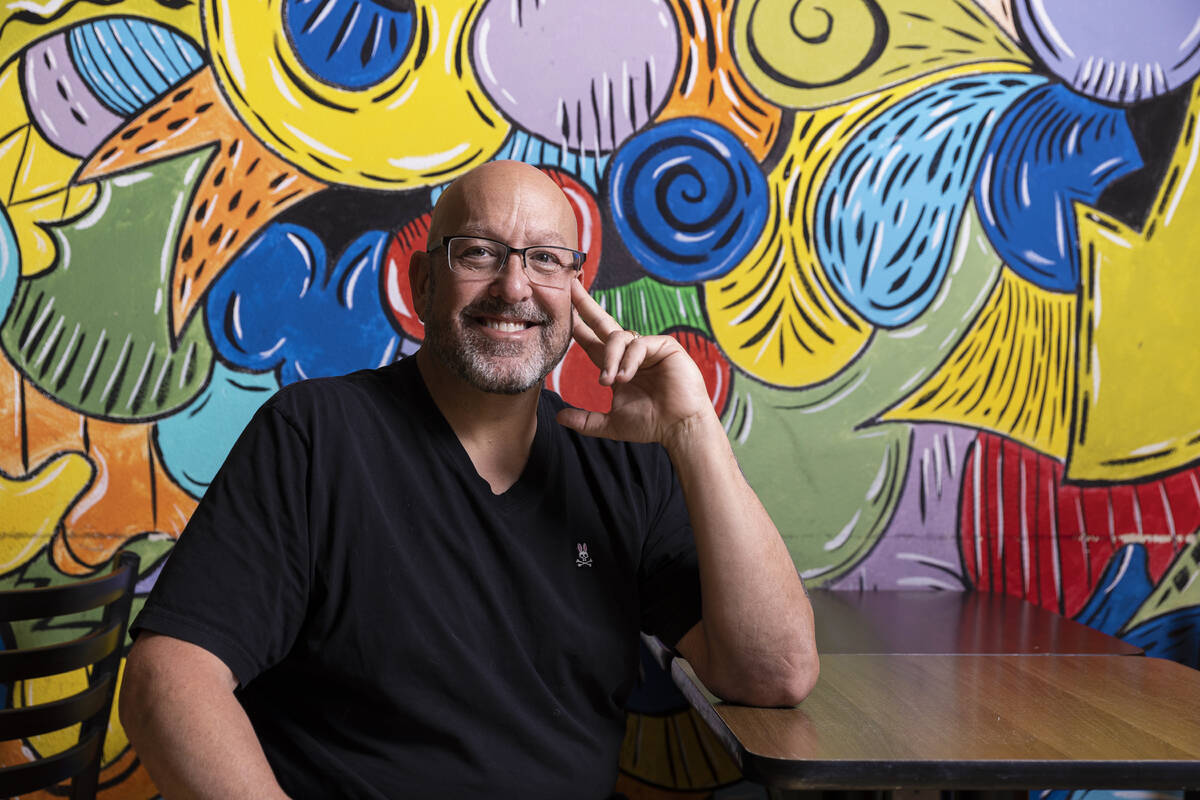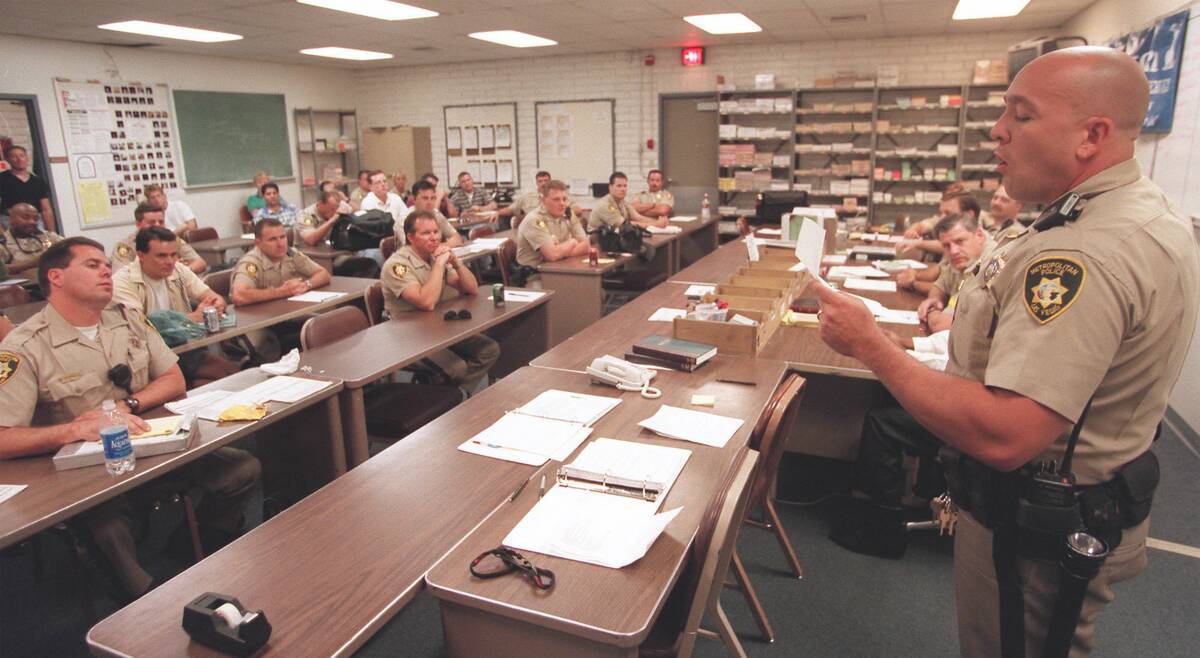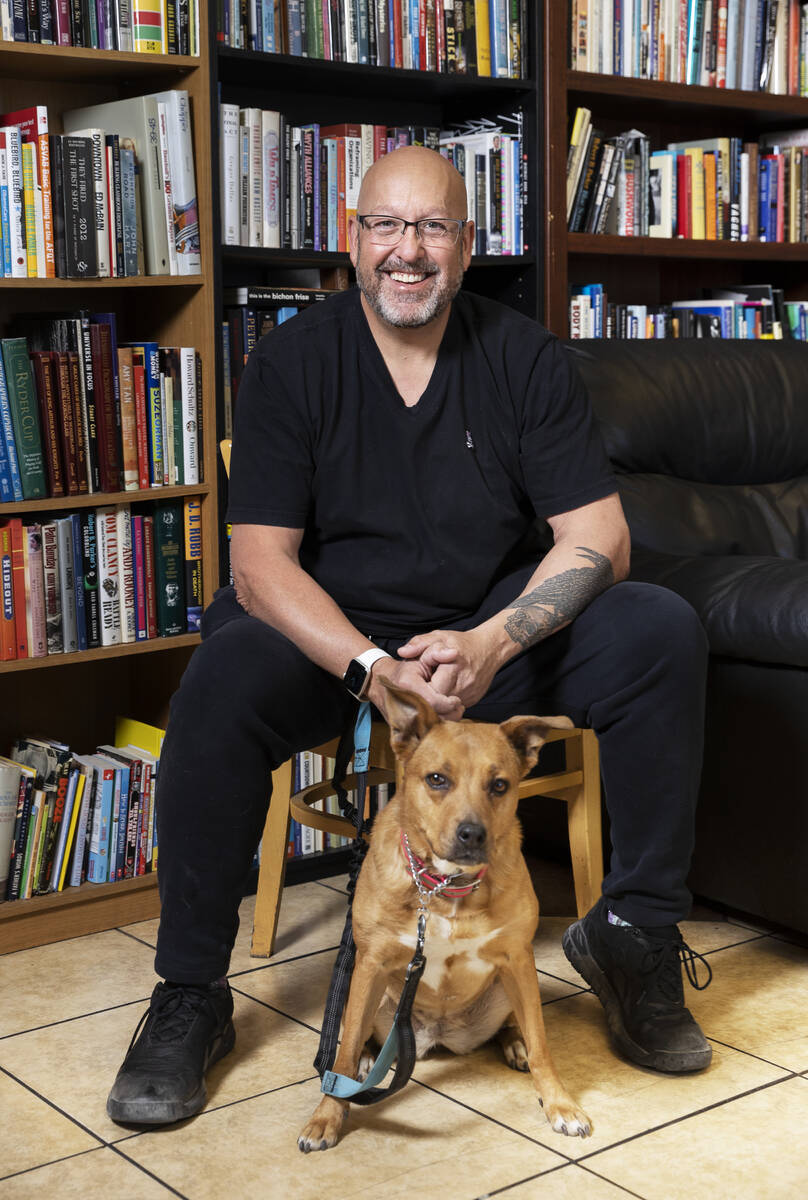This poet, and former cop, is bringing a ‘little light into the world’
“You can write anything you want about me, man,” says poet Harry Fagel, sitting at a table in Grouchy John’s coffee shop — very possibly the same table at which he was sitting when he wrote one of his favorite poems, titled “The Brown,” about a beautiful woman he saw rushing to the bathroom. That’s a true story, by the way, however much it might sound like us writing anything we want. But that would be fiction, and we’re here for poetry.
Because it was also at this table, some weeks ago, that Fagel was overheard to say that he never thought he’d live to see the demise of democracy in America, and now it seems to him that he might.
On this day, he classes up the same grim premonition by quoting that Yeats line about how the “centre cannot hold” — Americans are bunkering deeper into their ideologies, unwilling to listen to each other, threatening one another over symbols, E pluribus unum seeming to erode on the daily, while Europe goes to hell in a Russian handbasket, portending who knows what.
So we’ve come to one of Fagel’s favorite creative haunts to ask him: Against all of that, why bother to write a poem?
He’s glad we asked.
‘What a place to draw art from’
If this Harry Fagel fellow rings a bell, it’s probably thanks to his previous life as both a Metro cop and poet — he wrote and performed poems commemorating the Oct. 1 massacre, 9/11, fallen officers and more. There’s an appealing, media-friendly novelty about that, the toughness and emotional reserve required of cops paired with the emotional expressiveness of being a poet, and so he’s made the papers a time or two.
Fagel started thinking of himself as a writer once his first grade teacher at Lake Elementary School, near Desert Inn Road and Maryland Parkway, taught him to write. He retained that sense of himself even as he graduated from Bonanza High School and went to UNLV to study criminal justice with an eye toward becoming a lawyer.
Then he met a pair of cops, “these two jokers,” as he calls them, who took him on a ride-along. “I knew then that that’s what I wanted to do,” he says. Not just because it turned out to be an action-packed shift — a shooting, he says, and a pursuit. Rather, he could see right away that police work offered a window seat on the world. “What fascinated me was the people. And I thought, this is the kind of work that would keep me inspired for a long time.”
In the 25-year career that followed, which included postings in the southeast area in which he grew up, as well as in the Arts District, and eventually saw him rise to the rank of sergeant, he continued writing poetry, much of it based on his experiences in the streets: “What a place to draw art from,” he says. He was a regular at poetry readings, the scene at Cafe Roma. “Harry’s take on things was one of truth-teller, both factual and ethereal,” says Dayvid Figler, a lawyer and well-known local poet who’s known Fagel for decades. “He understood things were often more than they seemed to be and he wasn’t afraid to tell us about it.” (You can see Fagel in “Parkway of Broken Dreams,” last year’s documentary about the 1990s cultural scene along Maryland Parkway.)
Urged by a friendly captain, Fagel began reading some of his poems to his colleagues. “You want to talk about a tough crowd,” he says. “Guys that are armed with guns and you’re going to tell them some poetry?” But they were receptive, he says. His poems about cop work tended to be direct, visceral, often funny. But not always:
Every night out in the Vegas bake
Cop for 25 years out here
Sucking it up
Blowing it out
Keeping it cool
Risking it all
Front seat witness to death in all its inglorious;
Suicide, homicide, abuse, neglect
That’s from “Attention Reinvention,” a poem that goes on to mention being “spit on by idealists, revered by purists, dissected by journalists.” It’s not hard to see why an audience of police officers might pay attention in the weekly briefings during which Fagel read his poems.
He’s a skilled performer of his work, fluid and assured, direct and unmannered. If you could watch a scan of his brain as he’s busting out a piece, it would surely resemble an improbably controlled thunderstorm, all rolling clouds and flashes of lightning.
“Police are trained in something called ‘command presence,’ ” Figler says — that is, how to quickly establish their authority in a fluid situation. “Harry knows how to turn that on. But Harry was also born with a commanding presence on display the moment he takes the stage or shares a poem.”
But Fagel would like to think his readings did more than entertain his fellow officers with flashes of their job-truth rendered in verse. For one thing, perhaps hearing his poetry was as much an anxiety release for them as writing it was for him. More importantly: Police work is a mentally and emotionally complex job often entailing an emotional reserve, a high-alert wariness, a readiness to act and unimaginable stress; a glance at the headlines reminds us of how those qualities can lead some officers astray.
Enter poetry. “I think it’s important that we have more artistic endeavors within those types of professions because there has to be a balance,” Fagel says. A humanizing counterforce that promotes critical thinking and helps mitigate the negative impacts of the job. Poetry, the arts, philosophy, they all help “give people the why for what they’re doing,” he adds.
What about the reverse polarity: Other than giving him good material, how did the mental and emotional postures of cop work influence his poetry?
“The way that it really shaped me is that I have never given up hope on humanity,” he says. For every grim scenario he encountered at a crime scene, he witnessed acts of humanity. “It gives me a light at the end of the tunnel.”
Fagel’s early poems were gathered in two books, “Street Talk” and “Undercover,” published by Zeitgeist Press. Intending it as a compliment, one Amazon reviewer wrote of the latter, “If you don’t like poetry, you will still like this book.”
‘I love democracy’
Back to Grouchy John’s. The real topic of his poem “Attention Reinvention,” written in 2019, is the massive mindset switch from being a police officer to being a former police officer.
Suddenly
Rip cord pulled
Inches from the hard-packed earth
I retire
Which is why he can spend so much time in this coffee shop, usually in the company of one of his two dogs, drafting poems on his phone. “Mostly I just do a lot of walking and thinking,” he says. And, increasingly, one of the things he’s thinking about is the harsh condition of the world. “It’s because of the pandemic, it’s because of wars, it’s because of political divides, a lot of populist views coming up against progressive views. It’s just a hard time.” And it doesn’t seem likely to improve soon.
It’s precisely because Fagel doesn’t seem like your garden-variety alarmist that it’s somewhat alarming to hear him say stuff like, “I do think we might see the end of democracy in my lifetime. I hope not, but certainly it’s on the brink. Because some people want that, frankly.” Those people want a condition of anti-democracy, he says, in which critical thinking and the asking of tough questions are discouraged. This isn’t surprising, as enlightenment isn’t a natural human attribute: “We’re all kind of dumb, on the bell curve of life.”
“I love democracy,” he adds. “It’s sloppy, it’s dirty, it’s corrupt sometimes — but it’s essentially good.”
And so writing a poem in the midst of all our current and future uncertainty is his way of doing what he can to ensure that the center does hold, one guy doing his best to, as he says, “bring a little light into the world.” This is why he’s glad we asked.
Let’s end with a fuller version of the quote we opened with: “I’m hopeful,” Fagel says. “You can write anything you want about me, man, just please make sure people know I care about this world, and I want people to have hope. No matter what happens, no matter how bad it gets. Because that’s our resilience.”
Writing verse-atility
April is the 25th anniversary of National Poetry Month, launched by the Academy of American Poets to celebrate the art form's cultural importance.
Looking for ways to get more poetry in your life?
Spring Poetry Workshop Series
Three-hour poetry workshops are held from 2-5 p.m. Thursdays and Fridays at Fergusons Downtown.
The sessions are for writers of all ages and skill levels, and topics change each week. Classes are limited to 15 students, and there is a $5 registration fee. For more information, visit fergusonsdowntown.com
Beyond the Neon Poetry Open Mic & Acoustic Jam
On the second Saturday of each month, poets of all ages and experience levels can sign up to perform for five minutes at Mothership Coffee at 1028 E. Fremont St. Coming early to reserve a spot is recommended.
For more ways to celebrate, visit poets.org
























